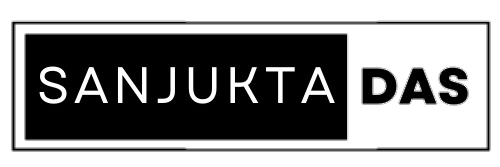
BLOG BY SANJUKTA DAS
International students entering the workforce often face challenges related to workplace etiquette due to cultural differences, language barriers, and unfamiliarity with local Canadian work customs. I personally think, it’s a huge learning curve when it comes to workplace etiquette and norms in a new country. This transition can be challenging for several reasons, and it’s important for both students and employers to recognize and address these issues. The work integrated learning component that I am engaged in allows employers and international students themselves to work together to bridge these gaps and create a more inclusive and productive work environment.
In my career preparation classes I always draw examples from what I have learnt as an immigrant woman. I tell my students we come from diverse cultural backgrounds with our own values and expectations. What is considered acceptable in another country may not be the same here. Work cultures differ. Expectations about punctuality, dress code, hierarchy and communication are varied. Acknowledging the differences first and then adjusting them is a process of integrating in to the work place etiquette.
I assure my students that it has been sixteen years for me in this country and I am still learning.
If you are you someone who overlooks the importance of workplace etiquettes, relationships and impressions that you make at your workplace, then you are at the right place, reading this.
We invest so much to keep our friendships intact, but it is equally important to take work relationships seriously. There are some acceptable and non-acceptable behaviour to keep your reputation positive where you work.
Being polite is basic. Greeting everyone when you see them the first time in the day, should be our primary habit. It sets the motion of communication for the day. Do not wait to judge the response from the other person. Their day and yours may not have started with the same quality. First impressions can impact the way people treat you at work, so you want to always ensure that you make a good one.
When I first heard the word “personal space” I found it interesting. Slowly and steadily, I have grown to understand the value of this term at the work place. I learnt when at work, giving people their personal space is vital specially when talking to them. The general rule of thumb is to stand at least an arm’s length away from the person you’re speaking to. You also want to ensure that you respect people’s areas in the workplace, such as desks, cubicles, and offices. This means not touching the items in their personal work areas without their permission. Being mindful of one’s surroundings and office space is a very basic expectation here.
This typically means that I need to keep noise to a minimum to respect the space of others. Keeping your phones on vibrate or silent mode, and using headphones as needed. If I have to have a personal phone conversation, I step out of the office space. Being sensitive to my volume is critical, trying not to make a noise, as this can be distracting to people who are working around me. Being mindful of your space also means keeping your workspace, whether that be an office, desk, or cubicle, clean and organized.
Being respectful about the time of every person is important in Canada, especially in the workplace. Being late is disrespectful, especially if it’s over 10 minutes. Try to be five-to-ten minutes early if you can. If I am running late, I make it a point to inform the people concerned. It just reduces the stress.
In any Canadian workplace, they have a top-down hierarchy. This means that the supervisors, managers, and bosses give instructions that are expected to be followed by the employees who are below them on the work hierarchy. For example, if you’re just starting a new job, it’s expected that you follow the instructions given to you by all your superiors, like your manager and supervisor. Ignoring this hierarchy can create a bad reputation and could even get you fired. Your supervisor can be your friend outside work, but at work, dynamics are different. Be aware and be respectful about it. When at work it is expected that you will treat your bossmore formally than your immediate coworkers.
It is expected that we should engage in conversations with our colleagues, but remember when chatting with your co-workers, don’t be intrusive or engage in gossip asking about details of their personal life or other sensitive topics.
Small talk is an essential part of the workplace culture and an important part of building relationships at work. But be mindful what the content of your “small talk” is. Be mindful you are not creating a negative impression of yourself.
One of the most toughest situations for me is when students go out to do their co-op placements and I get a call back from their employers requesting me to make them aware that while at work, they need to keep dress professional and adhere to the dress code whether it be uniform or business-formal. So again and again I remind my students, whatever they wear, they need to ensure that their clothing looks clean and polished to make a good impression. I keep harping, try not to wear dirty, stained, or revealing clothes to your new workplace as this can hurt your professional image.
Another very common error students make is getting into the WhatsApp mode of communication with their supervisors. Email is an important form of communication in the workplace, not WhatsApp or text messages. I cannot stop emphasizing how important it is to have a professional email address. A professional email address usually contains your name and numbers, which validates their identity.
I often suggest international students should actively seek to research and educate themselves about the workplace culture they step into so as to understand the norms of their new Canadian work environment. Asking for feedback and advice from colleagues to improve their understanding of workplace etiquette works wonders and makes the learning a little easier.







